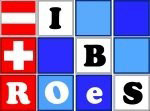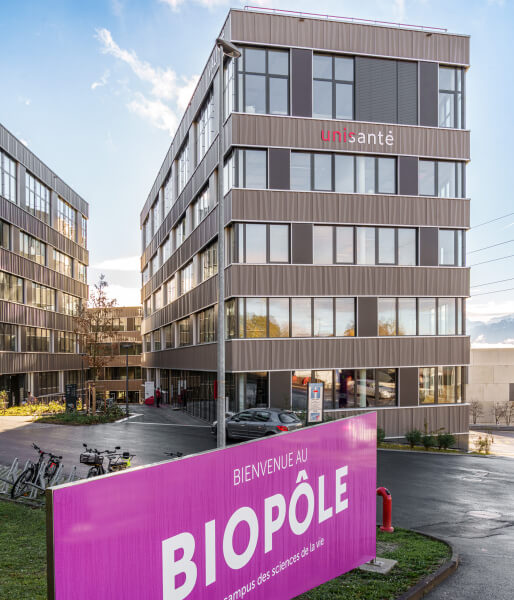31st Conference of the Austro-Swiss Region (ROeS) of the International Biometric Society
Lausanne, Switzerland, September 9-12, 2019

From Controlled Trials to Big Data and Back
Statistical data analyses are sometimes classified as being either exploratory or confirmatory, while the reality of statistical practice often lies in between. This middle territory is exemplified by “model selection” issues and Frank Harrell’s famous words: “Using the data to guide the data analysis is almost as dangerous as not doing so”.
The most accomplished confirmatory statistical analyses are conducted in the context of controlled (clinical) trials, where regulations and guidelines are to ensure a fully protocoled and planned statistical analysis. On the other hand, we are now living in the era of “big data” and “data science”, where extreme forms of exploratory data analyses are encouraged with the hope that data quantity prevails over data quality.
While data science is currently in vogue, there is also some perception that “those who ignore statistics are condemned to reinvent it”, as Brad Efron once said. It might be a time to return from the big data paradigm towards more classical approaches and concerns, and to land somewhere between the two extremes of the purely confirmatory and purely exploratory data analyses.
The XXXIst ROeS statistical conference will be a timely occasion to try to define what this “middle ground” should or could be to best meet the expectations of scientists.
- Sander Greenland (University of California)
- Stephen Senn (Luxembourg Institute of Health)
- Stefan Wäger (University of Stanford)
- Jan Beyersmann (University of Ulm)
- Florian Frommlet (Medical University of Vienna)
- Els Goetghebeur (University of Gent)
- Martin Huber (University of Fribourg)
- Marcus Hudec (University of Vienna)
- Rianne Jacobs (University of Groningen)
- Markus Lange (Novartis, Basel)
- Christoph Lippert (University of Postdam)
- Kaspar Rufibach (Roche, Basel)
- Georgia Salanti (University of Berne)
- Martin Spindler (University of Hamburg)
- Maarten van Smeden (University of Leiden)
- Manuela Zucknick (University of Oslo)
Abstract submissions deadline
May 15, 2019, June 3, 2019
Response to contributors
June 15, 2019
Early bird registration
June 30, 2019
Finalization of conference program
July 31, 2019
Registration + payment
deadline
August 15, 2019, August 25, 2019
Our address
Centre universitaire de médecine générale et santé publique, Lausanne
Département de formation, recherche et innovation (DFRI)
Biopôle 2, Secteur Vennes-Bâtiment SV-A
Route de la Corniche 10
1010 Lausanne – Switzerland
Contact
Valentin Rousson, E-mail, +41 21 314 73 28
Conference registration
Registration deadline is August 15 25, 2019.
To register for the conference go to the conference online registration.
THERE IS NO MORE PLACE AVAILABLE FOR THE EXCURSION AND CONFERENCE DINNER — PLEASE DO NOT CHOOSE THIS OPTION WHEN REGISTERING
Registration can be modified as long as the payment is not made.
Only credit cards are accepted for payments.
Conference fees
Prices listed below are in Swiss Francs.
- Registration
- For three days (September 10-12, 2019)
- IBS member (early bird / regular): CHF 270.- / 320.-
- Non-IBS member (early bird / regular): CHF 320.- / 370.-
- Student (early bird / regular): CHF 120.- / 170.-
- Excursion + Conference dinner
- As long as free places are available (otherwise this will be reimbursed). The excursion will take place on the afternoon and the conference dinner on the evening of September 11, 2019
- IBS member: CHF 90.-
- Non-IBS member: CHF 90.-
- Student: CHF 90.-
- Short courses (price per course)
- Introduction to causal analysis (September 9 morning, by Prof. Martin Huber) and Introduction to big data (September 9 afternoon, by Prof. Martin Spindler)
- IBS member: CHF 100.-
- Non-IBS member: CHF 100.-
- Student: CHF 50.-
Map of the University of Lausanne (Unil)
map_unil_genopode (PDF 493’857 bytes)
The conference will take place at the Génopode building (in the circle at the bottom left of the map) situated within the Sorge quarter (click here for the photo)
Public transport access
From Lausanne train station
> Métro m2, direction “Croisettes”, transfert at “Lausanne-Flon” next stop.
> Then métro m1, direction “Renens CFF”
> Get off at “UNIL-Sorge” stop.
From Renens train station
> Métro m1, direction “Lausanne Flon”
> Get off at “UNIL-Sorge” stop
or
> Bus 31, direction “Venoges sud”
> Get off at “UNIL-Sorge” stop
Consult the schedules
m1 and m2 métros
Public transport of the lausanne zone (tl)
Federal railways (CFF)
By car
From the highway
> Direction “Lausanne-Sud”
> Exit “UNIL-EPFL”
> Follow “UNIL”
> UNIL-Sorge
> Parking UNIL-Sorge
By plane
The closest international airport is Geneva with frequent and direct trains to Lausanne (approx. 50 minutes). Train tickets can be bought online beforehand.
The next most practical airport is Zurich with some direct trains taking 2h 30 to Lausanne. Basel EuroAirport is another possibility with a slightly longer train time.
Attendees are responsible for making their own lodging and travel arrangements.
Here is a list of few suggestions:
Aquatis Hotel ***S
Route de Berne 148
1010 Lausanne
E-mail
+41 21 654 24 24
www.aquatis-hotel.ch
The hotel allots a certain number of rooms at a special price on « a first come first served» policy. Participants book their rooms directly with the hotel by filling this form and send it by e-mail.
Single room: CHF 150.- per room per night incl. breakfast
Twin room: CHF 170.- per room per night incl. breakfast
+ city tax of CHF. 3.10 per person per night
Reliva Hôtel des Patients SA ***
Avenue de la Sallaz 8
1005 Lausanne
E-mail
+41 21 545 41 11
https://lausanne.hoteldespatients.ch/en/
The hotel allots a certain number of rooms at a special price on «a first come first served» policy. Participants book their rooms directly with the hotel by sending an e-mail, indicating the dedicated booking reference «ROES-IBS».
Single room: CHF 140.- per room per night incl. breakfast
King size in single use room: CHF 190.- per room per night incl. breakfast
Twin room: CHF 170.- per room per night incl. breakfast
+ city tax of CHF. 3.10 per person per night
Fassbind Hotels
4 different hotels in Lausanne (from 2 to 4 stars)
https://byfassbind.com/fr/hotel/lausanne/
If interested, please book your room directly via https://byfassbind.com/fr/hotel/lausanne/ (5% cheaper compared to the different hotel booking sites)
Lausanne Tourism
List of accommodation available on: https://www.lausanne-tourisme.ch/en/
- Introduction to causal analysis (September 9, morning)
Prof. Martin Huber, University of Fribourg, Switzerland
Abstract: This short course provides an introduction to causal analysis and treatment evaluation. First, it introduces the so-called potential outcome notation along with various definitions of causal effects and highlights fundamental problems in evaluating such effects. Second, it discusses alternative strategies and statistical methods for identifying causal effects of interest. Among the approaches considered are randomized experiments, controlling for observed covariates (i.e. assuming conditional treatment exogeneity), instrumental variable methods, and quasi-experimental designs like difference-in-differences and regression discontinuity designs.
- Introduction to big data (September 9, afternoon)
Prof. Martin Spindler, University of Hamburg, Germany
Abstract: In the first half of the course, an overview over big data is given, which (technical) challenges they pose and what pitfalls and dangers arise in the analysis of big data. It turns out that one major difficulty of big data remains the high dimensionality of the data compared to the size of the sample, actually a classical issue. An overview of statistical methods for estimation and inference is given in the context of big data. In the second part of the course, we discuss machine learning methods for efficient estimation and inference on treatment effects and structural parameters in big data. In particular the so-called “Double Machine Learning” (DML) approach is introduced which allows for valid post-selection inference even in high-dimensional settings.
Click below to download the scientific program (pdf)
Topics
Confirmatory Analyses
- Biometrical Methods in Agriculture, Forestry and Ecology
- Causal Inference in Epidemiology
- Innovations in Early and Late Clinical Trials
- Multiple Testing and Adaptive Designs
- Reproducibility in Biomedical Research
Statistical Modeling
- Bayesian Analysis
- Evidence Synthesis and Meta-Analysis
- Longitudinal and Missing Data
- Model Selection, Prediction and Overfitting
- Survival and Event History Analysis
Exploratory Analyses
- Challenges and Successes of Big Data
- Statistical Genomics
- Machine Learning and Artificial Intelligence
- Precision Medicine and Biomarker Assessment
- Bridging Biostatistics and Data Science
Scientific committee
- Valentin Rousson (Chair, University of Lausanne)
- Andrea Berghold (University of Graz)
- Frank Bretz (Novartis)
- Dominik Grathwohl (Nestlé)
- Georg Heinze (Medical University of Vienna)
- Dominik Heinzmann (Roche)
- Leo Held (University of Zurich)
- Torsten Hothorn (University of Zurich)
- Zoltan Kutalik (University of Lausanne)
- Patrick Taffé (University of Lausanne)
Local Organizing Committee
- Dominique Actis-Datta
- Catherine El-Bez
- Romain Piaget-Rossel
- Alex Randriamiharisoa
- Nathalie Rouge
Wednesday, September 11, 13:00 – 21:30
Detailed time schedule
- 13:00 Meeting at the Génopode conference desk
- 13:15 Departure by coach from Batochimie car park towards Clarens
- 13:45 Arrival at Clarens
- 14:00 Start of the first walk towards Chillon Castle
- 16:00 Arrival at Chillon Castle
- 16:30 Guided tour of Chillon Castle
- 17:30 Departure by coach from Chillon Castle towards Chexbres train station
- 17:50 Arrival at Chexbres train station
- 18:00 Start of the second walk towards the Auberge de Rivaz
- 19:00 Dinner at the Auberge de Rivaz
- 21:00 Departure by coach from the Auberge de Rivaz towards Lausanne main train station
- 21:30 Arrival at Lausanne main train station
NB: For people who do not want to do the first walk, the coach may bring you directly to Chillon Castle. Similarly, for people who do not want to do the second walk, the coach may bring you from Chexbres station directly to the Auberge de Rivaz.
